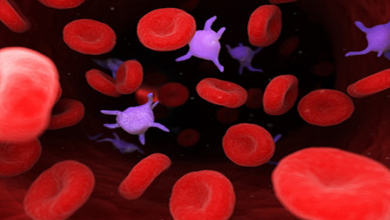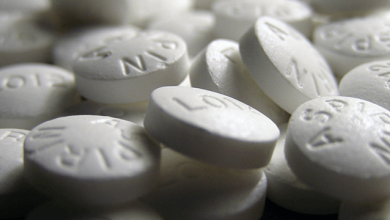Search results
Author(s):
Sasha Koul
,
David Erlinge
Added:
3 years ago
Acute coronary syndromes (ACS) are a major reason for death and morbidity in the industrialised world. One of the most successful treatments for ACS has been strategies to target the platelets and inhibit their function.
Mechanisms of Platelet Activation
Thrombus formation in the arteries is dependent on platelets and their ability to attach to the injured wall despite the rapid arterial blood…
View more
Novel Oral Antiplatelet Agents
Author(s):
Suzanne J Baron
,
Robert P Giugliano
Added:
3 years ago
Article
Platelet Function Testing in Clinical Practice - Experience and Views from Europe and the US
Author(s):
Thomas O Bergmeijer
,
Jochem Wouter van Werkum
,
Udaya S Tantry
,
et al
Added:
3 years ago
Article
Author(s):
Marianne Yngen
Added:
3 years ago
Introduction
Diabetes mellitus (DM), characterised by chronic hyperglycaemia, is a rapidly growing worldwide health problem. The prevalence of DM has been estimated at 3% to 5% of Western populations. The incidence of DM is increasing and will more than double within 15 years, mainly due to adverse lifestyle changes with excess caloric intake and reduced physical activity, which in turn will…
View more
Dual Antiplatelet Therapy in CAD
Author(s):
Christopher N Floyd
Added:
3 years ago
Article
Featuring: Prof Carlo Patrono
Author(s):
Carlo Patrono
Added:
3 years ago
Article
Author(s):
Laurent Bonello
Added:
3 years ago
Clopidogrel is a key antiplatelet agent that inhibits the second step of platelet aggregation through blockade of the P2Y12-adenosine diphosphate (ADP) receptor.1 Its use has enabled percutaneous coronary intervention (PCI) to expand by dramatically reducing thrombotic complications in acute coronary syndromes (ACSs).2,3 Since the first report by Jaremo et al. of a large inter-individual…
View more
Author(s):
Diego Penela
,
Maríbel Diaz-Ricart
,
Magda Heras
Added:
3 years ago
The usual underlying mechanism of acute coronary syndromes (ACSs) is a thrombotic event caused by the rupture or erosion of an atherosclerotic plaque. In this scenario, platelets and thrombin are key players. Thus, understanding the physiopathology of platelet activation is of paramount importance in the treatment of acute coronary ischaemia. There is ample evidence showing that adequate…
View more
Author(s):
Kerry Layne
,
Albert Ferro
Added:
3 years ago
Acute coronary syndrome (ACS) is a term used to encompass unstable angina (UA) and myocardial infarction (MI) with or without electrocardiographic (ECG) evidence of ST-segment elevation. Antiplatelet therapy has formed the backbone of ACS management for decades and the drug class continues to evolve as novel agents with increasingly efficacious antiplatelet actions are identified. The main risk…
View more
Author(s):
Jack Wei Chieh Tan
,
Derek P Chew
,
Muhamad Ali SK Abdul Kader
,
et al
Added:
3 years ago











